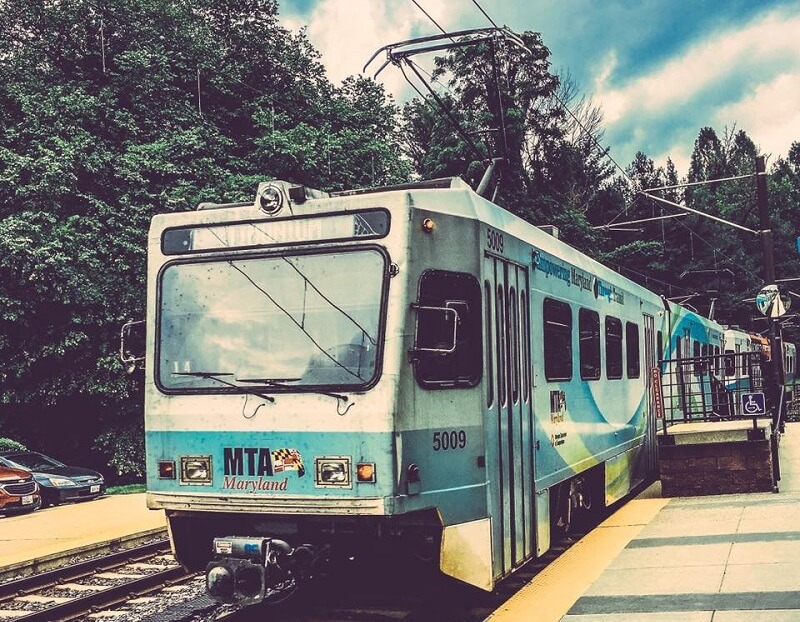Commentary: Transportation budget should better reflect Moore administration and legislature’s priorities

By Chrissy M. Thornton, Roger Schulman, and Brian O’Malley
Thornton is president and CEO of Associated Black Charities. Schulman is president and CEO of the Fund for Educational Excellence. O’Malley is president and CEO of the Central Maryland Transportation Alliance.
Despite last week’s announcement of a one-year infusion of cash, Maryland is wrestling with a projected $3.15 billion dollar transportation budget shortfall, exacerbated by the end of federal COVID-era support for transportation operations, overreliance on gas tax when vehicles are becoming more efficient, inflation, and more.
The Moore administration recently proposed to balance the six-year transportation budget with 8% across-the-board cuts to all the agencies within the Maryland Department of Transportation. While the cuts have been acknowledged by Transportation Secretary Paul Wiedefeld as a “first position,” what they fail to do is reflect the priorities of a new administration. Gov. Wes Moore (D) and the leadership in the General Assembly have the prerogative and duty to make their mark on transportation policy and goals in Maryland.
Gov. Moore and Lt. Gov. Aruna Miller (D) on the campaign trail pledged to “build an efficient and equitable transportation system that unharnesses economic growth …, protects our environment and our neighbors, and connects people with employers.” Instead, this across-the-board cut threatens to lock in the status quo of the previous administration, an administration that did not include among its priority concerns the environment, equity, or leaving no one behind. As recently as October 2023, Gov. Moore reiterated “Revitalizing the Red Line shows our commitment to economic development, transportation, climate action, and equity. The project will be an investment in residents’ access to jobs, education, services, and opportunities.”
While the proposed budget cuts would affect all transportation modes, they would be most adverse to public transit and those who rely on it. The Maryland Transit Administration (MTA) is already facing a $1.8 billion backlog for deferred transit maintenance. Illustrating that, service was recently suspended on Baltimore’s Light Rail to deal with critical maintenance issues, inconveniencing thousands of riders.
Loss of funding to MTA would only be a further stressor on already decreased service. The budget would reduce funding needed to address MTA’s maintenance backlog, eliminate several commuter bus routes, and dramatically cut aid to local bus systems, which provide service in the state’s suburban counties, connect people to jobs, and bind the region together. MTA would also delay its transition to electric buses, an important step to address climate and health concerns.
Cuts in the transit budget will fall hardest on individuals in economically and racially marginalized communities who may not have access to a vehicle. In Baltimore nearly 1 in 3 residents does not own a vehicle. A recent study using 2020 data found that only 8.5% of jobs in the Baltimore region — where Black and Brown communities make up the vast majority of transit users — are accessible within one hour by public transit.
If this budget comes to pass, we will see service disruptions that make it harder to get to work or school on time or take care of family obligations. Moreover, cuts to jobs and standards of living will be devastating for working class people who make up the backbone of the transit workforce across the region. Fidelity to data and equity requires a state transportation budget to intentionally improve mobility outcomes for Black Marylanders who comprise a disproportionate amount of MTA’s ridership.
Baltimore students are well-versed in the direct relationship between the quality of public transit and education mobility. In fact, the Fund for Education Excellence issued a 2021 report, Not In Service: Why Public Transit Must Aim to Serve Students, to illustrate how systemic MTA disinvestment undermines educational access. As Baltimore continues to increase its municipal contribution to public education, the state cannot retreat from supporting the very method of public transportation students rely upon to access the resources provided by the Blueprint for Maryland’s Future. State investments in education and transportation should not be considered in silos. Baltimore students need and deserve better performance from MTA — not less.
Further, the transportation sector is the largest source of climate pollution; if we don’t act aggressively to support reliable public transit and reduce reliance on gas-powered vehicles, we will not meet the Climate Solutions Now Act climate goals, accelerating the dangerous impacts of climate change.
The across-the-board budget cuts would perpetuate a harmful bias against public transit and state-of-good-repair, which the Moore administration should break with. Investment in reliable public transit and state of good repair are investments in administration priorities of equity and mobility for all, meeting our climate goals, and leaving no one behind.
Reducing the transportation budget cuts from $3.3 billion to $3.15 billion is a step in the right direction, but isn’t going to get us where we need to go. We urge Gov. Moore to submit a revised budget for legislators to work with in the upcoming legislative session and not miss this critical opportunity to reflect his campaign and administration priorities in the 6-year transportation budget. The time for bold, progressive, and decisive action is now.




 Creative Commons Attribution
Creative Commons Attribution